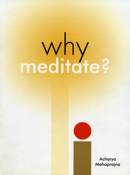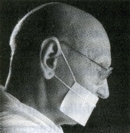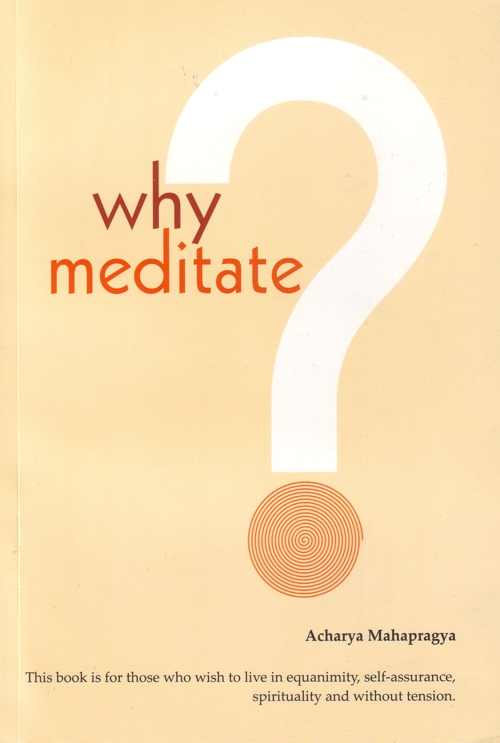
 The cause of illness does not lie only in the body but also in an unhealthy mind. Many diseases descend from the mind. They are not only physical ailments, but are psychosomatic. The cause of psychosomatic ailments is found in the internal world - the world of the psyche. Freud has used the word 'mind'. Jung did very subtle studies in the field of psychology. He explained that our consciousness has two levels: mind and psyche (consciousness). Psyche is beyond mind. Numerous ailments emerge from the psyche, the world of emotions. Both the terms 'healthy' and 'unhealthy' are related to the emotional world.
The cause of illness does not lie only in the body but also in an unhealthy mind. Many diseases descend from the mind. They are not only physical ailments, but are psychosomatic. The cause of psychosomatic ailments is found in the internal world - the world of the psyche. Freud has used the word 'mind'. Jung did very subtle studies in the field of psychology. He explained that our consciousness has two levels: mind and psyche (consciousness). Psyche is beyond mind. Numerous ailments emerge from the psyche, the world of emotions. Both the terms 'healthy' and 'unhealthy' are related to the emotional world.
A person gets very angry. As soon as the intensity of anger increases, the heart is stimulated and its beats become faster. Anger is the enemy of the heart. When anger crosses its limits, it damages the functioning of the heart.
The growth of fear disturbs the functions of the heart, the lungs and the kidneys. Some ask why their kidneys malfunction when they neither consume excess salt nor spicy food. Our emotional world is a subtler cause than our food. If a person is frightened, fear leads to malfunctioning of the kidneys.
Our emotions affect the functioning of the organs of our body, and our organs affect our emotions. The two are intertwined. If any part of our body is diseased, it has a direct effect on the emotional status of the person. When a person's liver is infected, he will become quarrelsome. There is no medication for removing quarrelsome traits.
But analysing from the perspective of emotions, a person with a quarrelsome nature should get his liver diagnosed. Malfunctioning of the liver can also lead to depression without any apparent reason.
From the standpoint of Preksha meditation, while discussing the causes of good health and sickness, we should not get stuck only on the external causes. Of course, the causes could be external. But we should also be aware of each and every organ of our body and see what is going on there. Whenever there is turbulence in our emotions, we should find out how our body is functioning. Similarly, when the parts of our body are malfunctioning, we should crosscheck how our emotions are. Both of them are interconnected. It is necessary for the trainers of Preksha meditation to know this fact.
The principle of Preksha meditation is that balanced emotions lead to a healthy body and unbalanced emotions lead to an unhealthy body. Unbalanced emotions make a person unhealthy and an unhealthy body will trigger the emotions.
Napoleon was defeated in the battle of Waterloo. The cause of his defeat was studied. Along with that study came a medical report as well. The report said that at the time that he took the decision to fight the Waterloo battle, his pituitary gland had failed. If we go along further with this fact, we can conclude that the failure of the pituitary gland renders a person cruel, merciless and bereft of compassion.
Preksha meditation is not a practice that is restricted to making the mind one-pointed for an hour, but is a holistic approach to life. One who wishes to live a good life should internalise the system of Preksha meditation. Because physical and mental illness strike and cause anguish, they disrupt the normal course of life. In order to think about these issues, we must enter the world of emotions. By investigating the subtle world of emotions, we will reach the truth.
Japanese scientists have done considerable research on the topic 'Emotions and diseases'. I would like to request some of the brilliant doctors and scientists working in the field of Preksha meditation to carry out research on the effect of emotions on our lives. How we can make our lives better, using emotions, is a subject for research.
Summarizing this chapter, we see that there are two worlds - the inner world and external world. The internal world is called the world of emotions and the external world is called the mind. The mind does not interfere with the internal world.
Uttaradhyayana Sutra, one of the prominent Jain Agamas, gives a clear explanation of the world of emotions. A question was asked to Bhagvan Mahavir, 'What does a soul get by purification of emotions?' Bhagvan Mahavir answered, 'One becomes fearless on purification of emotions.'
A person who neither meditates nor does chanting but resolves to be continuously aware of his emotions all the 24 hours of the day, and tries to keep them as pure as possible, will find there is no need of meditation, because, I believe, meditation is happening of its own. There is no need for him to do any other practice. If emotions are pure, that means he has found the solution. That is why we must transcend the boundaries of the mind, enter the world of emotions, purify them and thus obtain the secrets of optimum health and happiness.
 Acharya Mahaprajna
Acharya Mahaprajna
 Copyright by Acharya Mahaprajna ©2005
Copyright by Acharya Mahaprajna ©2005